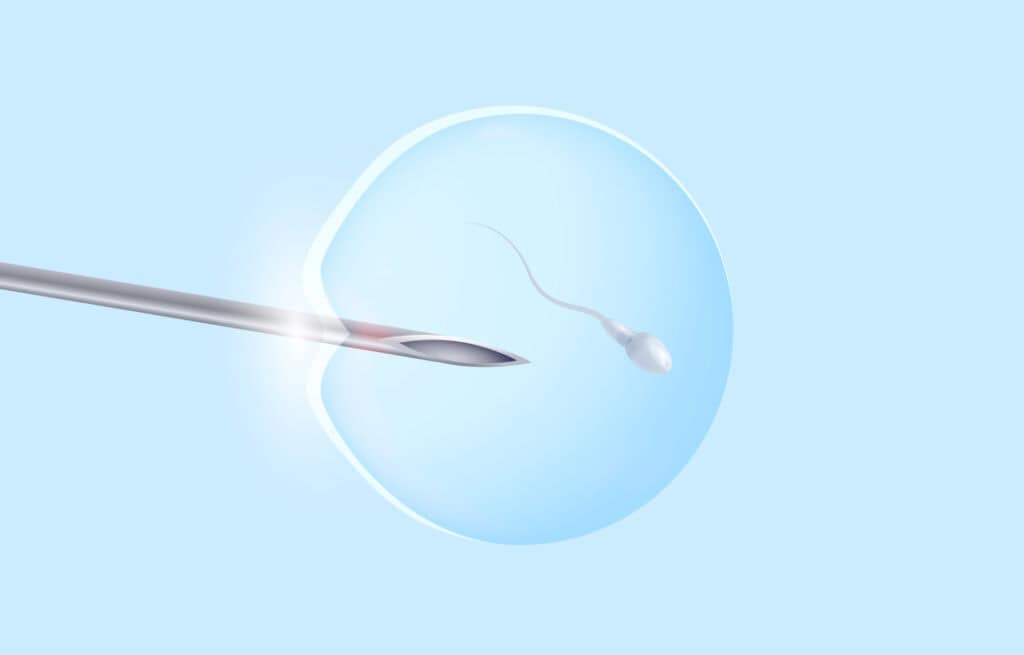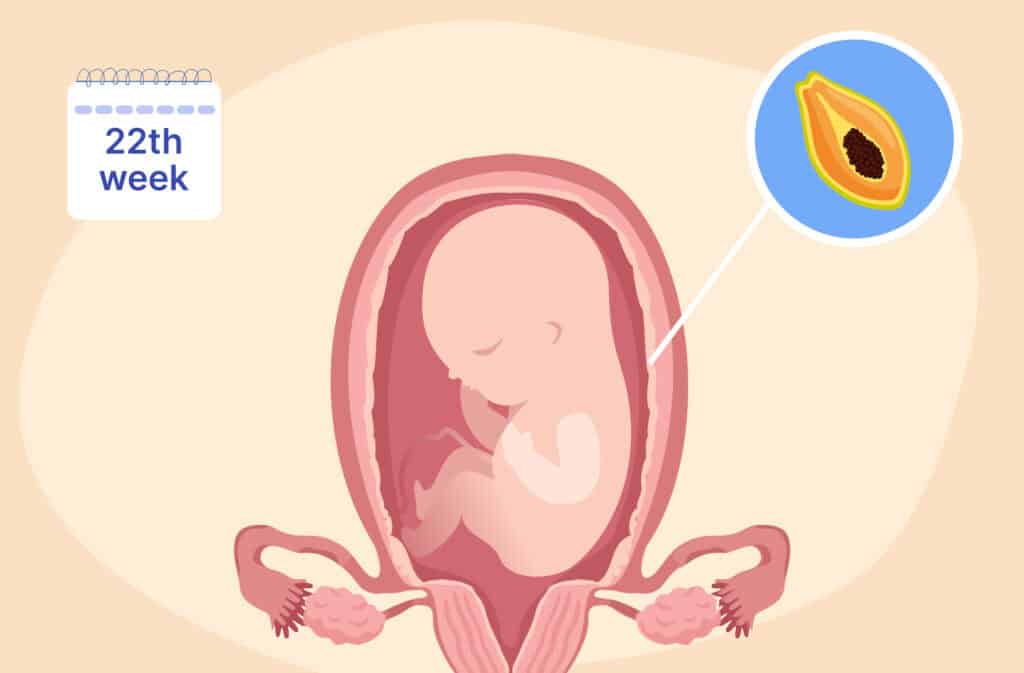Femia > Health Library > Getting Pregnant > Challenges > How long does IVF take to get pregnant: A complete guide from first appointment to pregnancy
How long does IVF take to get pregnant: A complete guide from first appointment to pregnancy

- Updated Feb 10, 2025
- Published
CRAFTED BY HUMAN
Crafted by human At Femia, we provide accurate and up-to-date information at every stage of your journey, from trying to conceive, pregnancy and postnatal support. All content is created by a real person based on in-depth research and own professional experience. Femia ensures that you will receive expert advice, strict accuracy and a personalized approach from our authors/medical experts. Learn more about our editorial policy.
FACT CHECKED
Fact checked At Femia Health, we maintain the highest standards of editorial excellence in delivering content focused on helping you conceive, guiding you through pregnancy, and supporting you postpartum. Explore our content review principles to learn how we ensure the accuracy and quality of our health and lifestyle tips for every stage of your journey.

Created with Hector Chapa, MD, FACOG, Clinical associate professor, Obstetrics and Gynecology Texas A&M University, College of Medicine in Bryan-College Station, USA
In vitro fertilization (IVF) is a complex process that consists of 6 key phases:
- Consultation
- Pre-cycle testing
- Medications
- Egg retrieval
- Fertilization
- Embryo transfer
Typically, the overall IVF process timeline takes between 6–8 weeks per cycle. However, both timing and IVF success might vary depending on individual factors, including age, medicine response, fertility issues, and others.
In vitro fertilization, or simply IVF, is one of the assisted technologies used to help people with fertility challenges have a child. It’s a complex, multi-stage process that involves monitoring and stimulating a female’s ovulation, retrieving an egg/eggs from her ovaries, and manually fertilizing them with sperm in a laboratory.
In this article, we’ll cover the IVF process timeline, from the initial steps to the awaited pregnancy, to help you understand what to expect and how long you’ll have to wait.
What does the IVF process consist of, and why does it matter?
In practice, the entire process consists of the following stages:
- Consultation and treatment plan development,
- Natural menstrual cycle suppression,
- Ovulation stimulation,
- Progress monitoring,
- Eggs retrieval,
- Eggs fertilization,
- Embryo transfer,
- Pregnancy confirmation.
The biggest question most people trying to conceive (TTC) through IVF might ask is, how long does IVF take from the first appointment to a successful pregnancy? Understanding the timeline of the whole process is important for people considering treatment for a number of reasons. It can help you better prepare for your future pregnancy and feel ready—physically, emotionally, and financially. Yet, most importantly, knowing the timeline can help you understand the IVF process better and thus, reduce the anxiety and stress during your TTC journey.
👉Find out more: How to improve egg quality: Tips for boosting fertility at any age
How long does IVF take: An overview
The complete process is often called an” IVF cycle.“ Clinics that deal with assisted reproductive technology typically tell patients to expect one IVF cycle to last between six to eight weeks. This timeline spans the entire cycle, including the initial consultation, the time of medicine intake, egg retrieval, fertilization, embryo transfer, and a finalizing pregnancy test.
How long does IVF take from the first appointment to egg retrieval?
From your initial consultation to the moment when a specialist can collect your eggs for fertilization, you will undergo several important stages, such as:
- Natural cycle suppression via medicines.
- Ovaries stimulation with follicle-stimulating hormone (FSH) to increase the number of produced eggs.
- Vaginal ultrasound scans to check the progress of the treatment.
- Human chorionic gonadotropin (hCG) hormone injection for stimulating egg maturation.
Typically, the timing between a consultation and egg retrieval is defined based on how long the ovarian stimulation lasts, which is about 8–14 days, depending on individual factors.
IVF process start to finish: Understanding the steps
Getting started with IVF begins before you even enter the assisted conception unit. When planning to get pregnant, you will want to see your general practitioner (GP) first. Your GP will likely give you a physical examination and suggest lifestyle changes to increase your likelihood of conception.
Usually, unless you have a specific history or pre-conditions that may put you at high risk of infertility, you will only be referred to fertility examination and treatment after you’ve been unsuccessfully trying to get pregnant for at least a year.
If you’ve been on your TTC journey for a while and haven’t achieved pregnancy, you might be referred to a fertility specialist, who will check your fertility history and perform a number of tests and physical examinations. In a case of a need for treatment, the further IVF process timeline can be broken down into the following stages:
Consultation with an IVF physician
After being suggested treatment, you will need to schedule a consultation with a physician in a selected IVF facility. During this consultation, a specialist will delve into your medical and family history and check the results of tests that you and your partner might’ve already done to draft a treatment plan for an individual case.
Typically, your IVF clinic will also give you a financial consultation to tell you about different pricing options and saving opportunities, so that you can pick the most suitable opportunity.
Pre-cycle testing
When planning a pregnancy, most likely, you wanted to get everything right and have already had multiple tests and examinations to ensure there are no issues that can get in the way. Nevertheless, your IVF clinic may request certain tests to ensure that all results are at hand and up to date.
For females, the most common tests include:
- Complete blood count (CBC)
- AboRh Blood Type
- PAP smear
- HIV 1/2
- Hepatitis B Core antibody
- Hepatitis B Surface antigen
- Hepatitis C antibody
- AMH (Anti-Mullerian Hormone)
- AFC Ultrasound (Antral Follicles count)
- TSH (Thyroid-stimulating hormone) and Free T4
- Varicella IgG Antibodies
- Measles IgG Antibodies
- Rubella IgG Antibodies
- Syphilis
- Prolactin
- Cytomegalovirus (CMV) IgG/IgM
- Chlamydia
- Gonorrhea
For males, commonly ordered tests include:
- AboRh Blood Type
- Semen evaluation
- HIV ½
- HTLV-I/II Antibodies
- Hepatitis B Core antibody
- Hepatitis B Surface antigen
- Hepatitis C antibody
- Syphilis
- Cytomegalovirus (CMV) IgG/IgM
- Chlamydia
- Gonorrhea
Additionally, you might be suggested to go through a genetic carrier screening to identify the possible risk of passing an inherited genetic disorder to your baby and get a chance to mitigate it.
Usually, your initial IVF consultation, pre-cycle tests and screenings, and treatment planning should take two or three weeks.
Medications
When your treatment cycle begins, your specialist will assign certain medications meant to boost the release of various hormones to regulate ovulation and stimulate the production and maturation of eggs. The medicines are prescribed based on individual needs and test results. Common fertility drugs that you might be using during your IVF include:
- FSH (e.g. Gonal F or Follistim)
- hCG (e.g. Novarel or Lupron)
- Human menopausal gonadotropin (hMG) (e.g. Menopur)
Throughout the time of medical treatment, the clinic will use vaginal ultrasound scans and, sometimes, blood tests to monitor your ovaries for progress. On average, the medication intake cycle lasts between eight to 14 days.
Egg retrieval
When the eggs are matured, they will be collected for further fertilization. This is a minor procedure that doesn’t take too much time and doesn’t require serious recovery.
Fertilization and transfer
After your eggs are retrieved, they will be fertilized with sperm in a lab setting. Specialists will culture the embryos for several days and then perform PGT-A (preimplantation genetic testing) to see if it’s ready for a transfer.
Typically, a fertilized egg is transferred three to five days after it’s been retrieved.
Egg retrieval process: How long does egg retrieval take?
The egg retrieval process begins when your eggs are mature enough. At the beginning of the procedure, you will be sedated, and your vagina will be cleaned. Once you’re asleep, the doctor will use an ultrasound to locate your ovaries and guide the procedure. They will pass a needle through your vagina and into egg-containing follicles for their collection. The needle is connected to a suction device, which will pull the egg to the test tube.
This procedure is considered minor and can take around 30–60 minutes. After the procedure, you will be typically taken to a recovery room to have a few hours of rest, after which you should be able to go home, though you will need someone to accompany you and drive you home.
Post-egg-retrieval recovery
As for recovery after the egg retrieval process, it’s typically rather fast and simple. You can usually expect to get back to work the day after the procedure. However, some people may need additional time to recover, depending on their symptoms, such as cramping, vaginal bleeding, etc.
Regardless of your recovery time, it’s recommended to steer clear of high-impact activities and heavy exercise for some time after the procedure. Be sure to clarify and follow your doctor’s post-retrieval guidelines.
IVF timeline: From egg retrieval to embryo transfer
After the eggs are retrieved, they’re taken to the embryology lab and analyzed for maturity. If everything’s ready for fertilization, the eggs are placed into an incubator with an optimal environment and combined with sperm for fertilization to happen naturally.
After the egg and sperm are combined, it typically takes about 18 hours to ensure successful fertilization. For the next two to four days, lab specialists monitor the embryo to ensure its optimal development.
All in all, the embryo remains in the lab for up to a total of five days and can be transferred anywhere between 3–5 days after fertilization. However, the timing can vary. For example, if you are suitable for and choose a frozen embryo transfer during a natural cycle. This type of transfer allows for a delay in the transfer process.
Another thing that might affect the time between fertilization and transfer is intracytoplasmic sperm injection (ICSI), which is frequently assigned when the sperm count or motility (movement) is low. In the case of ICSI, the fertilization rate tends to be higher (50–80%) compared to conventional IVF insemination (50%). However, since sperm is injected directly into every egg, the risk of egg damage in ICSI is also higher (5–15%).
How long does IVF take to get pregnant: What to expect post-transfer
After the egg transfer, an embryo will need to implant into your uterus lining to develop into a fetus. Though it may be incredibly tempting, you’ll need to wait for two weeks to take your pregnancy test and confirm conception.
Hopefully, a single IVF cycle can lead to pregnancy. Nevertheless, it’s important to remember that everyone’s IVF journey is unique. Factors like age, fertility issues, embryo quality, lifestyle habits, the number of transferred eggs, and many others can all influence IVF success. The results can vary significantly from one person to another and, sometimes, there might be a need for more than one IVF cycle.
👉Find out more: Implantation bleeding vs period: How to tell the difference
Variables that affect the IVF timeline
The total IVF process timeline can depend on the following variables:
- Age. Generally, IVF success rates tend to be higher in women under 35 compared to those of 40 years or above. This is due to a naturally decreasing number and quality of eggs that might affect the chances of conception.
- Type of fertility issue. Certain fertility problems can complicate and lengthen the IVF process. For example, ovulation-related issues tend to have a smaller impact on IVF success than blocked fallopian tubes.
- Previous pregnancy history. Women who have been pregnant before typically have faster IVF cycles compared to those with no pregnancy or miscarriage/failed IVF attempt history.
- Egg quantity and quality. Egg production also has a significant impact on IVF. Females with a higher number of high-quality eggs tend to have higher IVF success rates.
- Sperm quality. The count, motility, and shape of sperm also affect the chance of success and timing for IVF.
Other things affecting the timeline and success of IVF may include your individual response to treatment; the timing, number, and quality of transferred embryos; uterine receptivity; lifestyle; and others.
Questions from the Femia community
Can you speed up the IVF timeline?
While the overall timeline is set to be between 6–8 weeks, the process depends a lot on individual response to medication and other variables, which makes the length of the IVF cycle vary from one female to another. Therefore, the timeline can potentially be shortened or extended for each individual case.
Is there a maximum number of IVF cycles I can do?
No, there is no absolute limit for the total number of cycles. However, it’s important to note that the IVF success rate tends to decrease after several subsequent failures, especially for women over 40.
How long should I wait between failed IVF cycles?
Most clinics recommend waiting for one full menstrual cycle between IVF attempts, though it’s always recommended to seek personalized advice that considers your individual situation.
Does egg freezing shorten the IVF process?
Yes, freezing eggs can help you shorten future IVF cycles. By doing this, you can eliminate the ovarian stimulation and egg retrieval steps when you have another IVF attempt, hence, greatly shortening the timeline.
The bottom line
How long does IVF take from the first appointment to pregnancy? This is one of the most common questions asked by people seeking to use fertility-assisted technologies. As you now know, the entire IVF process consists of multiple steps, including:
- Preparation
- Consultation and testing
- Medication intake
- Egg retrieval
- Fertilization
- Egg transfer
- Pregnancy confirmation
Typically, it takes around 6–8 weeks to complete a full IVF cycle. However, the timing can be affected by multiple variables, including age, treatment response, fertility issues, sperm and egg quality, etc. To understand the IVF timeline for your specific case, consult a fertility specialist and receive personalized guidance.
References
- “In Vitro Fertilization (IVF).” MedLine Plus, Medical Encyclopedia, 31 Mar. 2024, https://medlineplus.gov/ency/article/007279.htm.
- “IVF and The IVF Process.” Monash IVF, https://monashivf.com/services/fertility-treatment-options/the-ivf-process/.
- “Getting Started – IVF.” The National Health Service (NHS), 18 Oct. 2021, https://www.nhs.uk/conditions/ivf/getting-started/.
- “IVF Embryo Transfers: The Complete Guide 2024.” Pacific Fertility Center Los Angeles (PFCLA), 31 May 2024, https://www.pfcla.com/blog/embryo-transfers#:~:text=The%20embryo%20transfer%20will%20occur,and%20supplements%2C%20like%20Vitamin%20D.
- “Egg Retrieval Process: What to Expect Before, During, & After.” Pacific Fertility Center Los Angeles (PFCLA), 16 Jul. 2024, https://www.pfcla.com/blog/egg-retrieval-process-what-to-expect#:~:text=Rest%20%26%20Recovery,-After%20about%20an&text=The%20patient%20must%20be%20accompanied,and%20recover%20from%20the%20procedure.
- “In Vitro Fertilization.” NYU Langone Fertility Center, https://nyulangone.org/locations/fertility-center/in-vitro-fertilization-egg-freezing-embryo-banking/in-vitro-fertilization#:~:text=Step%20Three%3A%20Fertilization%20in%20the%20Lab&text=Once%20the%20egg%20and%20sperm,a%20total%20of%20five%20days.
- “Conventional IVF Insemination vs. ICSI: Which IVF Method Should You Choose?” One Fertility Kitchener Waterloo, https://www.onefertilitykitchenerwaterloo.com/ivf-insemination-vs-icsi/.
- Jain, Shefali. “Understanding IVF Success Rate: Chances, Percentage, & First Time Factors.” Asian Institute of Infertility Management, https://www.asianinfertility.com/blog/factors-affecting-ivf-success-rate.

At 22 weeks pregnant, your baby is growing quickly and developing key senses. Learn about baby size, symptoms, and tips for week 22 pregnancy.

Learn the signs that indicate your breast milk is coming in during pregnancy. Discover when lactation starts, what changes to expect, and how to manage leaking breast milk.

Want to achieve a better orgasm? Explore our best techniques and methods to give a try solo and with your partner.
